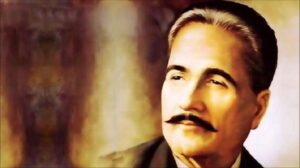Invisible prisons

By Shahid Rizvi
A woman of 70 years, not in the most robust of conditions, but still working to support herself, fell ill. She was discovered lying unconscious on the threshold of her cut piece cloth shop – which doubled – as her leaving quarters too, and was rushed to hospital, by consent neighbors.
Although in a very critical condition, the old lady recovered. The surprising part of the story is that she had sons and daughters and their children, all well off, able and willing to serve and support their grandmother. But when she recovered, she returned to her shop and refreshed the offer of her children to go home with them.
What teased the minds of all those who knew the old woman was her determined independence. She was not angry nor upset with any member of her family, but no one could find any reason for such a strange, unreasonable behavior, until later when she herself explained.
The strong-willed old lady said that for the first time in her entire life, she had found herself of free woman at this stage in her life – a woman having complete liberty and control over her personal life.
This freedom was very dear to her and for this she was willing to deny all else —– all the comforts she could get from her children, all her needs being catered to.
Her words sounded vague and ambiguous. There seemed little credibility in her stance. No argument seemed to sustain her attitude, especially at a time when her health was warning and she needed her daughters and sons to look after her. The concept of women’s liberation in her mind was not clear. But her ideal was very dear to her.
Har children lived respectably in homes with every luxury, and all loved their mother.
The old woman, herself, had been born in ‘kacha’ house where her mother and father both lived and worked. They packed material on a contract which could bring them a meager sum. They survived and lived like others in similar low-income families where children are left free, due to the constraints of their parents, who have to pay more attention to wage earning than bringing up children properly. The old woman, like any other child borne into such circumstances, was rarely advised not to do this or that. As one of such a lot, as a small girl, she started by giving a helping hand to her mother and father. All her brothers and sisters did the same. However, when her brothers grew up, they left home being discontented with the paltry conditions.
One went away to some other city while the other got a job in some factory as a labor and the proved himself more responsible. Like most girls in our society, our case history was committed to her parents, and had to help them. She remained confined to her home. Her parents were proud of her she felt exalted when she was described at the most responsible offspring by them. She was shouldering the financial burden and was loved by all.
But with all the appreciation and love she received and her devotion to her parents, all the willingness with which she rendered service as for home, still she had something pricking deep in her heart. She never desired getting an education in school, nor did she plead for good clothes and food. She never demanded being entertained. She never asked for anything. She knew neither her parents nor she could fulfill such desires. But there was something which she herself knew, she wanted to do something on her own free will. Something which could give her a feeling of self-importance.
When she grew up, and girls grow up mysteriously soon, she wanted to talk to the boys in the neighborhood, but her desire was suppressed by the idea that she had to give time to the job with her parents. The society in the law tier is by far freer and there is no serious consideration given to moralities. There was no bar on talking to or spending time with the boys, but there was not enough time.
One day her brother saw her talking to a youth and noting her interest asked the youth to marry his sister. It was a simple function, and she was married to her liking but not with the glamour she desired. Naturally, marriage is a life occasion and specially girls like all the show to be there.
Her husband was very nice to her. He was also one of the poor lots residing in the locality. He was a factory worker and was earning a little more than her parents. He stayed on overtime to make both ends meet. She appreciated his efforts and loved him. During the early years are marriage she was not allowed by her husband to work to augment the household income. But the time came when she became a mother of two and then it was difficult to prolong the need for extra money. She started working and added income was a relief to the household budget.
During those early days, her husband took her to different entertainment spots. She traveled by train to other cities and visited the beach, zoo and parks. She had known that such pursuits would be assessable only after she was married. Just as she presumed that in her husband’s home, she would have her own will to act freely.
She was loved by her husband who provided her with all she wanted. She lived in pleasure, devoted to her family. Working at home and earning some money, she helped her husband gain more skills in his profession and also a college education. It made conditions better and her family moved to a better house and locality. They migrated during the partition and settled here. The efforts they made; the hard work made them a family of good resources. A few years later her husband died. As the eldest member of the family, she was obeyed until the children grew up and gradually to took up all responsibilities. Although she was loved and respected by all, she was losing her importance and becoming only a sacred scripture in a frame hung on the wall.
And then it dawned on her that the seasonal woman that she was, she had never been a free woman. She was accepted and sometimes rejected. All her actions, her likes and dislikes, her efforts and hard work hard, her wishes and decisions were seen and appreciated in connection will others.
As a daughter she had carried her obligations and duties towards parents and siblings, but she felt there was not a single moment she had called her own.
Even her husband had been ‘chosen’ for her, in a way, her parents not like him, they would have objected and married her off where they chose.
She felt very lonely. Not a single moment of her efforts towards herself. It was all for the family. Every decision required the opinion of her father in her parent’s home and her husband in the latter’s home.
Her views were considered but the opinion of male members dominated. She remembered how she had opposed the idea of migrating, but the decision was taken by her husband. It was not her decision. After her husband’s death, her sons became the senior members and looked after the family affairs and arranged the marriages of their sisters.
And when she was first ignored by her children answer on certain occasions as customarily happens, she as a working woman all her life, could not tolerate it. It was the law of survival. All her past efforts, her sacrifices could not make her a decision-maker. A full-grown woman was not equal to a male child.
It is the fate ….. and growing of old.
She thought over and over again and then announced that she was going to start her own small business of cut-piece cloths and to the surprise of the family, she declared she would do it alone. She was vehemently opposed the ‘family honor’ that was at stake, they claimed, but this time she had decided not to accept male chauvinism and domination. She thought that she now knew what women’s celebrations meant.








